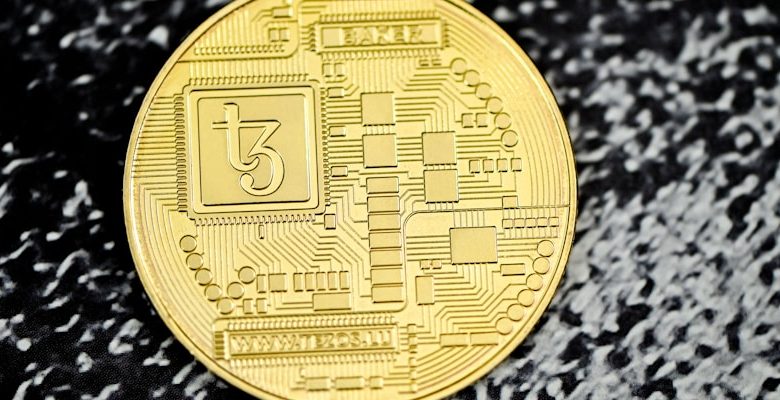How Blockchain is Revolutionizing the Gaming Industry

- Introduction to Blockchain technology
- The impact of Blockchain on game development
- Benefits of using Blockchain in gaming
- Blockchain-based in-game economies
- Enhancing security and transparency in gaming with Blockchain
- Challenges and future prospects of Blockchain in the gaming industry
Introduction to Blockchain technology
Blockchain technology has emerged as a game-changer in various industries, including gaming. It is a decentralized, distributed ledger system that securely records transactions across a network of computers. This technology ensures transparency, security, and immutability of data, making it ideal for the gaming industry.
Blockchain technology in gaming allows for the creation of unique digital assets, such as in-game items, characters, or currency, that are securely stored on the blockchain. This provides players with true ownership of their virtual belongings, enabling them to buy, sell, or trade these assets with other players.
Moreover, blockchain technology can also facilitate peer-to-peer transactions without the need for intermediaries, reducing transaction costs and increasing the speed of transactions. This can revolutionize the way in-game purchases are made, allowing players to directly exchange assets with one another.
Overall, blockchain technology has the potential to disrupt the gaming industry by providing a more secure, transparent, and efficient ecosystem for players and developers alike. As blockchain technology continues to evolve, we can expect to see more innovative use cases and applications in the gaming sector.
The impact of Blockchain on game development
Blockchain technology has had a significant impact on game development in recent years. By utilizing blockchain, game developers are able to create decentralized games that offer players unique experiences and opportunities for ownership. One of the key benefits of blockchain in game development is the ability to create non-fungible tokens (NFTs) that represent in-game assets. These NFTs can be bought, sold, and traded by players, allowing for true ownership of digital assets.
Additionally, blockchain technology allows for increased transparency and security in gaming. With blockchain, all in-game transactions are recorded on a public ledger, ensuring that they are secure and tamper-proof. This not only helps to prevent fraud and cheating but also gives players peace of mind knowing that their transactions are safe.
Furthermore, blockchain has the potential to revolutionize the way that games are monetized. By using blockchain-based currencies, such as cryptocurrencies, developers can offer players new ways to earn and spend money within games. This opens up new revenue streams for developers and allows players to have more control over their in-game finances.
Benefits of using Blockchain in gaming
One of the key benefits of incorporating blockchain technology in the gaming industry is the increased security it provides to players. By using decentralized networks, blockchain ensures that all transactions and data within games are secure and tamper-proof. This helps prevent hacking and cheating, creating a more fair and transparent gaming experience for all users.
Another advantage of utilizing blockchain in gaming is the ability to truly own in-game assets. With blockchain, players have full control and ownership of their digital items, characters, and currencies. This means that players can buy, sell, and trade these assets without any restrictions from game developers or third parties.
Furthermore, blockchain technology enables faster and more cost-effective transactions within games. Traditional payment methods often involve high fees and long processing times, especially for cross-border transactions. By using cryptocurrencies and smart contracts, blockchain streamlines payments and transfers, making it easier for players to participate in in-game economies.
Additionally, blockchain enhances the concept of verifiable scarcity in gaming. Through the use of non-fungible tokens (NFTs), game developers can create unique and limited digital items that players can collect and trade. This adds a new layer of excitement and value to gaming, as players can truly own rare and exclusive items within the game.
Blockchain-based in-game economies
Blockchain technology has had a significant impact on in-game economies within the gaming industry. By utilizing blockchain, game developers are able to create decentralized systems that allow for secure and transparent transactions of in-game assets. This has opened up new opportunities for players to truly own and trade their virtual items, leading to the rise of blockchain-based in-game economies.
One of the key advantages of blockchain-based in-game economies is the ability to prevent fraud and counterfeit items. Since transactions are recorded on a decentralized ledger, it is nearly impossible to manipulate or duplicate in-game assets. This not only protects players from scams but also adds value to rare and unique items within the game.
Furthermore, blockchain technology enables verifiable scarcity of in-game assets, creating a sense of exclusivity and rarity that drives demand among players. This scarcity model can lead to increased engagement and retention as players strive to collect and trade valuable items within the game.
Overall, blockchain-based in-game economies have the potential to revolutionize the gaming industry by providing a secure, transparent, and decentralized ecosystem for players to buy, sell, and trade virtual assets. As more game developers adopt blockchain technology, we can expect to see a shift towards player-driven economies that offer new and exciting opportunities for gamers worldwide.
Enhancing security and transparency in gaming with Blockchain
Blockchain technology is revolutionizing the gaming industry by enhancing security and transparency in various aspects of gaming. By leveraging blockchain, game developers can ensure that in-game assets and transactions are secure from hacks and fraud. This increased security is achieved through the decentralized nature of blockchain, which makes it nearly impossible for malicious actors to manipulate the system.
Furthermore, blockchain technology also brings transparency to gaming by providing a public ledger of all transactions and asset ownership. This transparency allows players to verify the authenticity of in-game items and ensures fair play among all participants. With blockchain, players can have confidence that the virtual items they acquire in games are truly owned by them, as their ownership is recorded on the blockchain.
Overall, the integration of blockchain technology in gaming offers a more secure and transparent environment for players to enjoy their favorite games. With the assurance that their in-game assets are protected and that transactions are verifiable, players can fully immerse themselves in the gaming experience without worrying about security breaches or fraudulent activities.
Challenges and future prospects of Blockchain in the gaming industry
As Blockchain technology continues to make waves in the gaming industry, there are several challenges that need to be addressed to fully realize its potential. One major challenge is the scalability of Blockchain networks, as they can slow down when processing a large number of transactions. Developers are actively working on solutions to increase the speed and efficiency of Blockchain technology in gaming applications.
Another challenge is the integration of Blockchain into existing gaming platforms, as this can be a complex and time-consuming process. Developers need to ensure seamless integration without disrupting the user experience. Additionally, there are concerns about the security of Blockchain technology, as hackers are constantly looking for vulnerabilities to exploit. It is crucial for developers to stay ahead of potential security threats and implement robust security measures.
Despite these challenges, the future prospects of Blockchain in the gaming industry are promising. One of the biggest advantages of Blockchain technology is its ability to provide transparency and decentralization, which can lead to a more equitable gaming ecosystem. Players can have ownership of in-game assets and transactions can be securely recorded on the Blockchain, reducing the risk of fraud and cheating.
Furthermore, Blockchain technology can enable new revenue streams for game developers through the creation of unique digital assets and in-game currencies. This can open up opportunities for players to trade and monetize their in-game items, creating a more dynamic and engaging gaming experience. As Blockchain technology continues to evolve and mature, it is expected to revolutionize the gaming industry and transform the way games are developed, played, and monetized.



